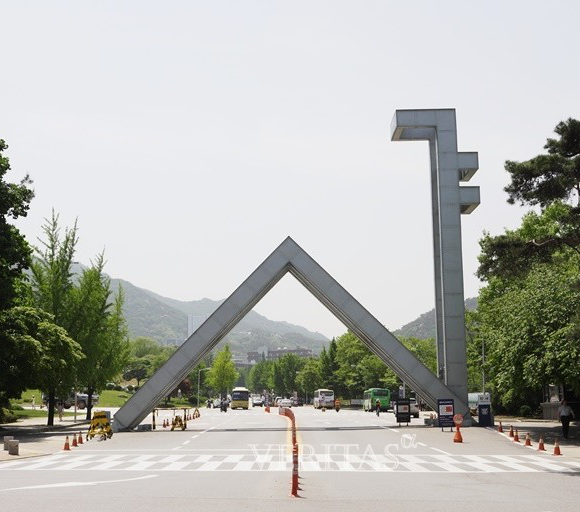Department News
[Veritas Alpha] SNU Consortium Operating ‘Self-driving Mobility Service Pilot Project’
Author
관리자
Date
2020-12-15
Views
583

[Veritas Alpha=Seung-hee Shin] On December 14th, Seoul National University announced the successfulgoing operation of the ‘Self-driving Mobility Service Pilot Project,’e of the Korean ‘New Deal’ projects assisted by the Ministry of Land, Infrastructure and Transport. The project is also co-operated by LG Uplus and Automos.
Since October 19th, SNU has been operating a self-driving late-night shuttle service ‘Majung’ in Baegot New Town, Siheung City, Gyeonggi Province during times when public transport is not readily available. The public transport between Oido station and Baegot New Townly operates for a few hours and has long service intervals, a source of many complaints from residents. With this new service, they expect to enhance the safety and convenience of citizens by ▲Fixing the blind spot of public transportation ▲Bus stops within walking distance of residential area ▲Ensuring driving stability.
The pilot project ordered by the Ministry of Land, Infrastructure and Transport provides a funding of 7 billion won for two years (3 billion won in the first year, 4 billion in the next) for self-driving automobile-based mobility projects. In addition to providing self-driving services to the public, it also offers opportunities to test out self-driving technology for private businesses.
SNU Consortium and the Ministry of Land, Infrastructure and Transport signed the pilot project in May. SNU provides driving algorithms for self-driving cars, while LG Uplus offers the control tower platform and automobile-road infrastructure communication service. Automos handles the manufacturing of self-driving automobiles and runs the service.
With cooperation from Siheung City and local transport services, the late-night shuttle service is being provided for free since October, from Oido station of Line 4 & Suin-Bundang Line to Baegot New Town residential area. A total of four shuttle cars are in operation. Also, as an opportunity for university students to try out the self-driving automobile, it is also operated during the day. By end of next year, the service will be expanded to include the entire Baegot New Town with a total of 5 destinations, adding up to 7 vehicles (6 cars, 1 van),
The shuttle self-drives at 50km/h in normal city traffic, with both pedestrians and vehicles the road. While driving, it stops and goes according to the traffic signal information it receives via WAVE-based communication. The user can book the shuttle via the app, and check their booking information and operating information their phone. COVID-19 safety measures are being implemented as well.
Citizens who used the service reacted as follows: “When I tried it myself, I couldn’t believe that it would be this well-developed. I hope there will be more services like this in the future.” “It’s a good thing that people can get around late at night safely with this service.”
Prof. Kyong Su Yi, director of the pilot project, said: “With this self-driving service project, we hope to set a good precedent, testing out self-driving technology in a real urban traffic environment and our service model. We plan expanding to other regions and globally as well.”
Seoul National University has constructed Army/Navy/Air Force future mobility research buildings and testbeds in Siheung Campus. It was selected as a Free Economic Zone this year, and is increasing its efforts in attracting investments via industry, academia, research, and government cooperation. Especially, it has been running the future mobility research building and self-driving test area since July 2020, in order to set up a self-driving automobile-based future smart mobility ecosystem.
Ministry of Land, Infrastructure and Transport plans to improve testbeds and create up to 10 sites for self-driving mobility services until the year 2025 in order to encourage the commercialization of self-driving cars. It will also start an interdepartmental R&D project worth 1.1 trillion won self-driving technology development.
Original article http://www.veritas-a.com/news/articleView.html?idxno=349247

